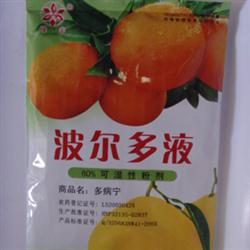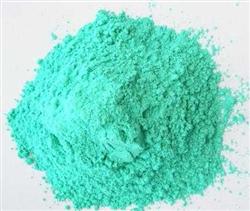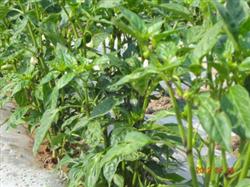What is a non-internal absorption fungicide?

What is a non-internal absorption fungicide? The Bordeaux solution usually used is a sky blue viscous suspension made of copper sulfate, quicklime and water, which is alkaline and corrosive to metals. It is a kind of non-internal absorption type protective inorganic fungicide, and its effective ingredient is basic copper sulfate. after crop spraying, it adheres to the surface of crops and bacteria in the form of particles, and through the action of air, water, carbon dioxide, crop and bacterial secretions, it is slowly transformed into soluble copper to play a bactericidal effect. Bordeaux liquid precipitates for a long time and gradually reduces the efficiency of crystallization, so it should be used now and cannot be stored. Bordeaux liquid can control many kinds of diseases of cotton, peanut, rape, broad bean, vegetable and fruit tree. because of its good adhesion, Bordeaux liquid is not easy to be washed away by Rain Water on plants, and it is welcomed by farmers because of its simple preparation and low cost. but improper preparation and use is counterproductive. 1. The quality of Bordeaux liquid is not only related to the preparation method, but also closely related to the quality of raw materials. There is little difference in the quality of copper sulfate sold in the market, but there is a great difference in quicklime. Ash blocks with light density without impurities should be selected. Powdered lime exposed to moisture or weathering is generally not used. If there is no quicklime instead of hydrated lime, the dosage should be increased by 30-50%. Rivers, lakes and ponds should be used for water. High temperature will make Bordeaux liquid colloidal particles agglomerate and precipitate, and hot water and water containing heavy chloride should not be used in preparation to prevent drug damage. 2. The preparation method is generally "two-liquid method". Dissolve copper sulfate and quicklime in two containers with half amount of water, then pour copper sulfate and quicklime into the third container at the same time, and gently stir in one direction with a stick until the solution is sky blue. 90% of the water can also be used to dissolve copper sulfate, 10% of the water can be used to prepare lime milk, and then copper sulfate can be slowly poured into lime milk to show sky blue. The Bordeaux liquid prepared by these two methods has good suspension performance, fine particles, not easy to precipitate, strong adhesion on crops and good disease prevention effect. Lime milk must not be poured into copper sulfate, otherwise the colloidal particles of Bordeaux liquid will become thicker and precipitate easily. In addition, the preparation of Bordeaux liquid can not use metal utensils, the application of porcelain vats or buckets, plastic buckets, used sprayers should also be rinsed immediately. The ingredient ratio of each dosage form of Bordeaux liquid should be determined according to the sensitivity of crops to copper sulfate and quicklime and what diseases, seasons and temperatures are controlled. In general, the more lime is used, the safer the plant is, the longer the efficacy is, but the slower the germicidal effect is. If the amount of lime is small and the germicidal effect is fast, it is prone to drug damage and can only be used in crops with strong resistance to copper. There are several combinations in the preparation of Bordeaux liquid, and which combination should be determined according to the types of crops and diseases. Generally, there are many kinds of "equal quantity", "half quantity", "double quantity" and so on. Click to get more fungicide use technology click to get more pesticide use technology
- Prev

How to use copper element fungicide?
How to use copper element fungicide? Please introduce the effect of copper fungicides. Copper fungicides can not only prevent and cure fungal diseases, but also prevent and cure bacterial diseases, protect and prevent wounds, sterilize and eliminate inflammation, and treat some skin diseases.
- Next

What should we pay attention to when using fungicides to irrigate roots?
What should we pay attention to when using fungicides to irrigate roots? Please introduce the use of fungicide root irrigation should pay attention to the following points: first, the use of bacterial fertilizer in the shed try not to use fungicide root irrigation to prevent disease. For the land where bacterial fertilizer is used, it is easy to kill the biological bacteria in the bacterial fertilizer and make the bacterial fertilizer lose its fertilizer effect. If a disease has occurred in the crop, it must be.
Related
- Fuxing push coffee new agricultural production and marketing class: lack of small-scale processing plants
- Jujube rice field leisure farm deep ploughing Yilan for five years to create a space for organic food and play
- Nongyu Farm-A trial of organic papaya for brave women with advanced technology
- Four points for attention in the prevention and control of diseases and insect pests of edible fungi
- How to add nutrient solution to Edible Fungi
- Is there any good way to control edible fungus mites?
- Open Inoculation Technology of Edible Fungi
- Is there any clever way to use fertilizer for edible fungus in winter?
- What agents are used to kill the pathogens of edible fungi in the mushroom shed?
- Rapid drying of Edible Fungi

